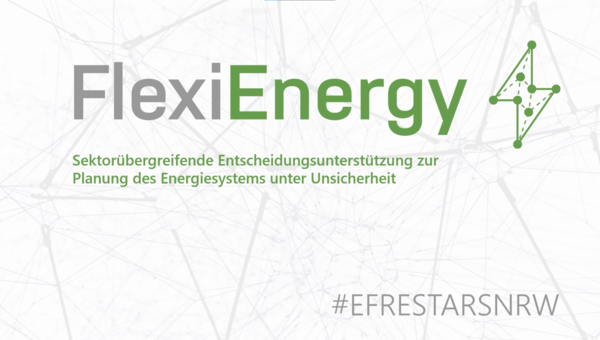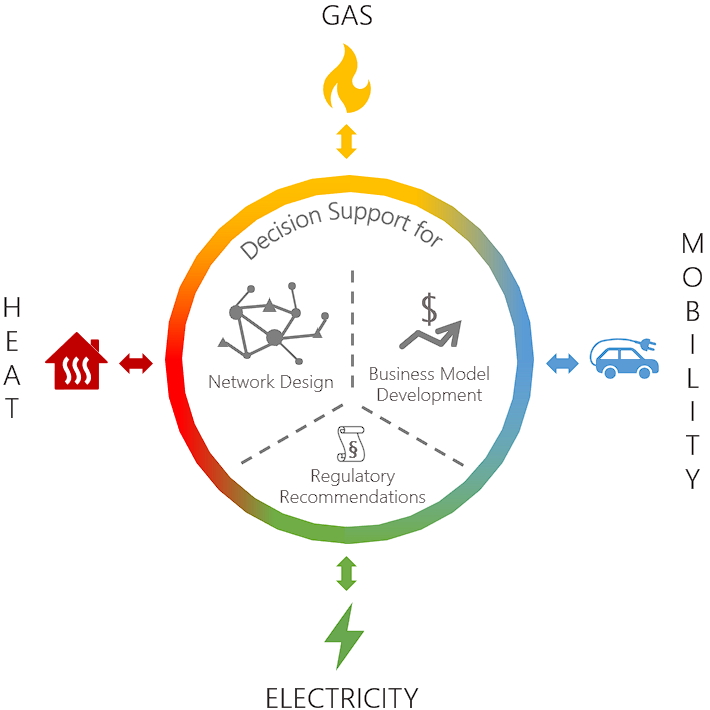
FlexiEnergy
Against the backdrop of rising demand for energy and the finite nature of fossil fuels such as oil and gas, the German government has set a target of increasing the share of electricity from wind and solar power in gross final energy consumption from around 15 percent at present to 60 percent in 2050. There is still a long way to go. The question arises, for example, as to how the future energy system should be designed under increasingly volatile energy generation.
Cross-sectoral planning of energy networks (i.e., integrated consideration of electricity, gas, district heating and mobility) offers the possibility of exploiting synergies between different energy sources and thereby making energy systems more cost-efficient and lower in CO2 emissions, as well as ensuring the stability of networks in the future. However, integrated planning also increases complexity, as many influencing factors with their interactions, different interests of stakeholders (i.e. utilities, grid operators and politics) as well as uncertainties have to be considered in the planning process.
Therefore, in this project a decision support system shall be developed, which supports the involved actors in this planning and transformation process and provides recommendations for the future design of energy systems. In addition to recommendations for the future grid design, recommendations for the design of business and tariff models as well as regulatory policy recommendations will be derived.
To achieve these goals, the project will first develop a knowledge system that maps the complex and uncertain influencing factors, including their interactions, and presents them transparently to the decision-maker. From this, various future scenarios can be derived, which enable different options for action to be considered within the decision-making process. Furthermore, simulation and optimization models for the integrated planning of the sectors electricity, gas and heat as well as mobility will be developed, so that robust and flexible solutions for network design can be identified. It can be assumed that in the course of the energy transition, value-added shares will shift and new market roles and business areas will emerge. For this reason, innovative business and tariff models will be developed in the project, which are aimed at so-called "prosumers" (a consumer who is also a producer), for example, or which address new concepts such as neighborhood grids and tenant electricity models.
Finally, the decision support system will be piloted based on the case studies of the participating project partners. This will ensure a broad application of the methodology to be developed and, at the same time, produce concrete recommendations for action for grid operators and energy supply companies as well as politicians.


